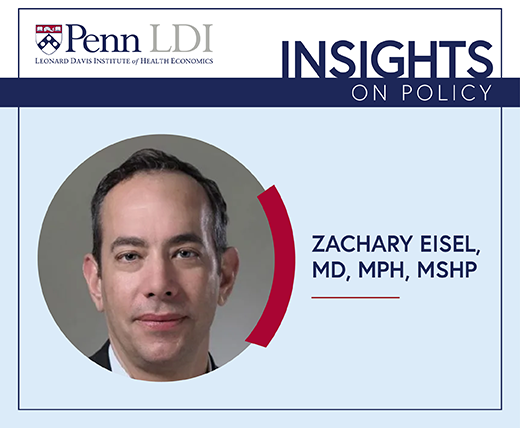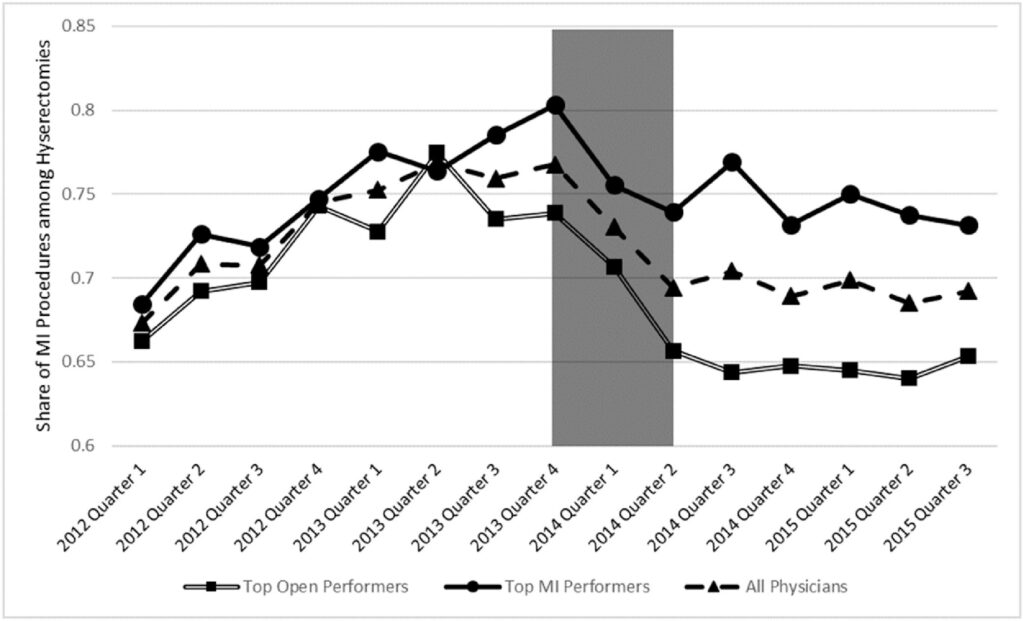
Estimated Overdose Deaths Due to the Loss of MOUD in the One Big Beautiful Bill Act
Research Memo: Delivered to House Speaker Mike Johnson and Majority Leader John Thune
Blog Post

While it is widely known that skill levels differ among physicians, it is not known how these skill differences affect their treatment choices. An unexpected safety warning from the U.S. Food and Drug Administration about minimally invasive hysterectomies offered us an opportunity to evaluate how a negative information shock affects clinical practice across physicians with different skill levels.
My colleague Bingxiao Wu and I evaluated data from patients who received either minimally invasive or open hysterectomies between January 2012 and September 2015 in Florida. We found that after the FDA issued a safety warning in April 2014, discouraging the use of laparoscopic power morcellation during minimally invasive hysterectomies due to evidence that it could spread undetected malignant tissue, oncologists shifted toward performing open procedures and away from the minimally invasive procedures. However, as the above chart shows, oncologists who were more skilled in performing minimally invasive procedures were far less likely to abandon this procedure compared to those who were less skilled in these procedures.
The results speak directly to policies that aim to integrate evidence-based medicine with individual practice. They demonstrate that differences in physician skill can be a key barrier to translating evidence into practice. Policies that ignore these differences may lead to negative consequences, including medical complications and, in rare cases, death.
The study, Information, Relative Skill, and Technology Abandonment, was published in the Journal of Health Economics in May 2022. Authors include Bingxiao Wu and Guy David.


Research Memo: Delivered to House Speaker Mike Johnson and Majority Leader John Thune

Research Memo: Delivered to House Speaker Mike Johnson and Majority Leader John Thune

Hospitals’ Current Cost Reports are Unreliable and Should be Improved, LDI Fellow Finds

If Federal Support Falls, States May Slash Home- and Community-Based Services — Pushing Vulnerable Americans Into Nursing Homes They Don’t Want or Need

Historic Coverage Loss Could Cause Over 51,000 People to Lose Their Lives Each Year, New Analysis Finds

Cited for “Breaking New Ground” in the Field of Hospital Operations

Men are Stepping Up at Home, but Caregiving Still Falls On Women and People of Color LDI Fellow Says

More Flexible Methadone Take-Home Policy Improved Patient Autonomy